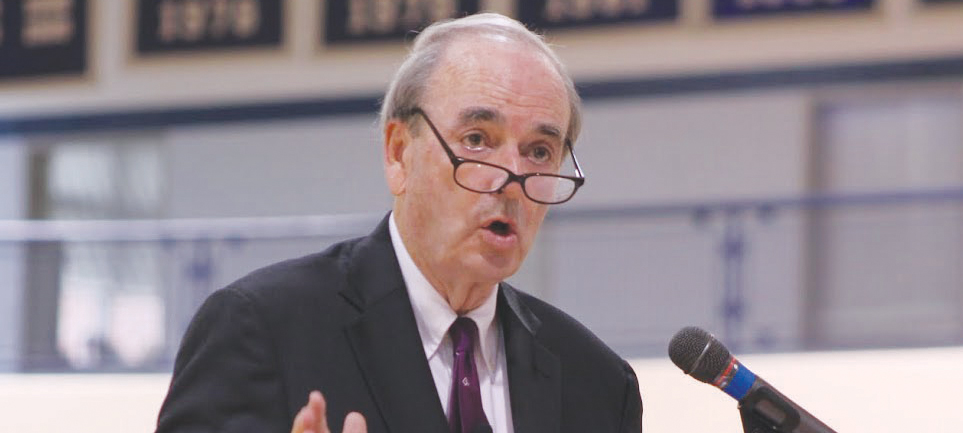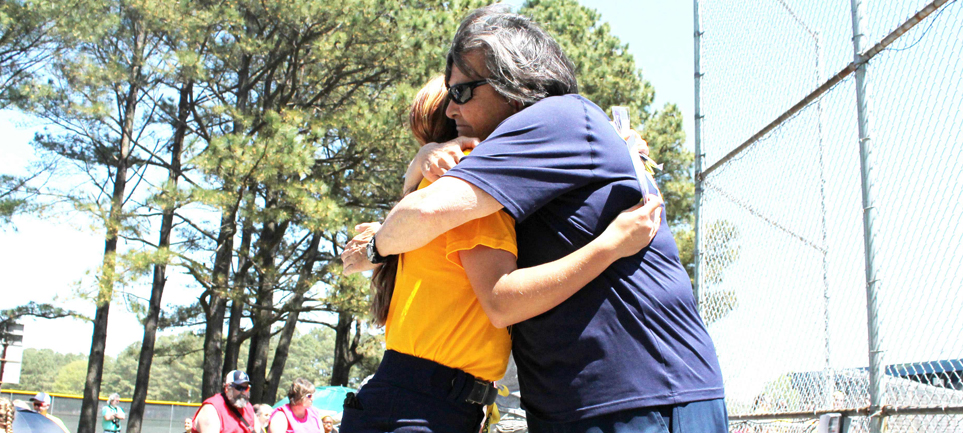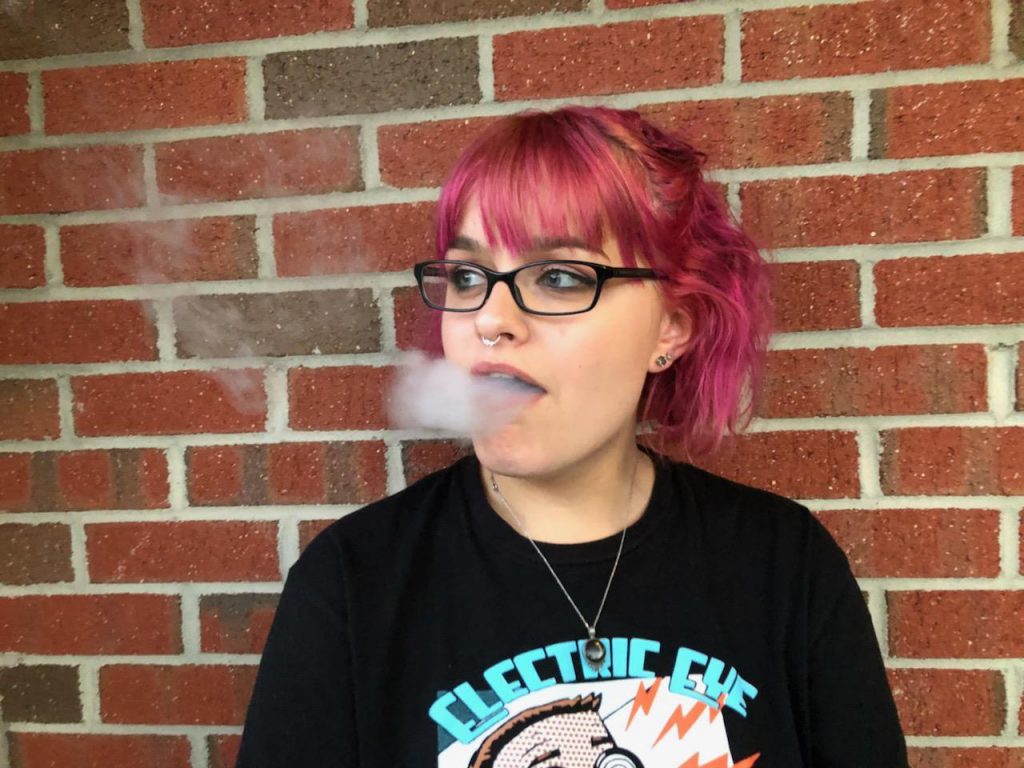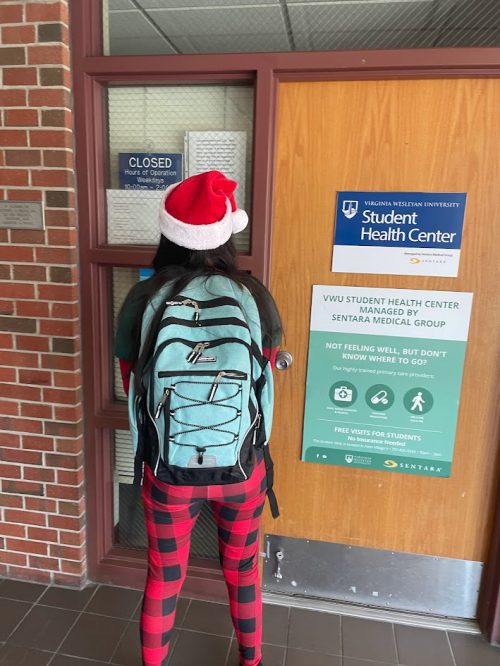Anthony Dellamura/Marlin Chronicle
Jessica Mackey
News Editor
In a room full of faculty, staff, trustees and friends, one person stood out in the crowd: President William Greer himself. In a poignant farewell speech to campus faculty and staff, Greer addressed his retirement and plans for the future of the college.
In typical Greer fashion, he began his State of the College Address with a story. The story was about a young lady’s misfortune in having car trouble after car trouble, which finally resulted in having two flat tires, without a spare tire to be found. She was left with no choice but to drive on the rims of her car. The takeaway message from this was that the college has had to keep riding on their rims even when resources are limited. They have to figure out a way to manage anyway, even when the options did not seem possible.
Throughout the address, Greer spoke of Virginia Wesleyan’s achievements throughout the year. They included the largest overall enrollment to date, bolstered by a large freshman class.
The college has been moved from a fourth-tier national ranking to a first-tier college. Virginia Wesleyan College has been selected as one of 379 colleges of distinction by the Princeton Review. The college has also been named one of the finest institutions in Hampton Roads.
Greer discussed a changing trend in popularity of majors, with the natural sciences reigning supreme. Psychology, math, computer science and political science majors are growing at high rates too. Moreover, Greer thanked the faculty for their impressive books and research throughout the years.
Greer emphasized how the endowment of the college continues to grow, even after reaching an impressive $60 million.
Greer congratulated the community service office on campus for the service the students at Virginia Wesleyan do throughout the Hampton Roads area every year. Examples included the Cooking for Kids club, which provides more than 50,000 meals each year, and the Habitat for Humanity organization on campus, which has built five homes over the years.
Greer discussed the challenges the college continues to face, such as the proper allocation of resources, rising rates of tuition, the exponential growth of technology, and the competition of competing with older, wealthier institutions.
As Greer described Virginia Wesleyan College, “We are small but feel big.”
Greer announced some of the improvements and changes that came to Virginia Wesleyan over the summer. These included a new social science lab, a renovated Blocker Hall, the introduction of the Live Safe App for additional security on campus, the newly created Presidential Council on the Inclusion of Community, the new Strategic Plan for 2015-2020, and fresh leadership in the Center for the Study of Religious Freedom.
Greer addressed what he hopes for the future of Virginia Wesleyan. He hopes the college will begin using the resources around us every day to enhance the curriculum opportunities for students. He hopes that one day, the college will begin studying the Great Dismal Swamp and improving on our understanding and research of the water that surrounds us. In addition, he would like to see the college expose students to the advances of international business and the ventures that are provided to them just by living here in Hampton Roads.
“My priority in my last year as acting president is to make the runway for the next president as smooth as possible, like a laser,” said Greer.
There were many highlights throughout Greer’s time here at Virginia Wesleyan. His proudest moments include winning the NCAA National Championship in men’s basketball in 2006 because it proved that even though our school is small, we can still achieve excellence in all that we do. Another high point was the construction of the Batten Student Center. It transformed the culture here and has enhanced our students’ lives greatly.
“I would say–this will probably take you by surprise–but the single most proudest moment, is when the economy turned to bad in 2008, the economy soured, we were able to hold on to jobs. Many organizations were cutting people loose, people were losing jobs, we did not lose a single job here, and I am proud of that. There are a lot of other moments. When I look around and see how the campus has changed physically, that’s a proud moment for me. When I look at the fact that we have a really, really strong study abroad program here, that’s a really proud moment for me. There have been many proud moments but the one on the top of my list would be saving jobs.”
In 1992, Virginia Wesleyan College looked very different from the college you see today. There were no Godwin or Clarke halls. There was no Village 4. The administrative offices were primarily located in of the library. The gatehouse at the front of campus resembled a wooden outhouse, and there was no proper basketball facility in place.
In addition to bringing numerous physical changes to campus, Greer has expanded the partnerships with various corporations and organizations throughout the Hampton Roads area.
Having found a home here at Virginia Wesleyan College, he developed partnerships with corporations throughout the Hampton Roads area.
“I wanted to be a president of a college in an urban environment,” said Greer. “I wanted to be in an urban environment where there was more going on. Where the potential to develop partnerships with colleges and universities in the area, as well as non-profits and corporations. It’s been being in this urban environment that I had been looking for.”
“We have a partnership going on right now with the Chrysler Museum where students are excited about the glass blowing opportunities,” said Greer. “We have partnerships with the Virginia Aquarium. That allows our students to go on a 46-foot boat and go out on the Chesapeake Bay and study the bay, and it’s partnerships like this that I accredit to the growth of the natural sciences department on campus. In addition, we have a partnership with Old Dominion University that now allows our students to seek engineering degrees.”
Greer ended his State of the College Address with his recommendation for what he hopes for the next president of the college.
“My advice to the next president is: ‘Listen to the community. We want to be original. Stay healthy because the health of the college depends on the health of the president. And have a sense of humor. And being in a position of leadership, it is sometimes more important to move out of the way and let others shine.”




